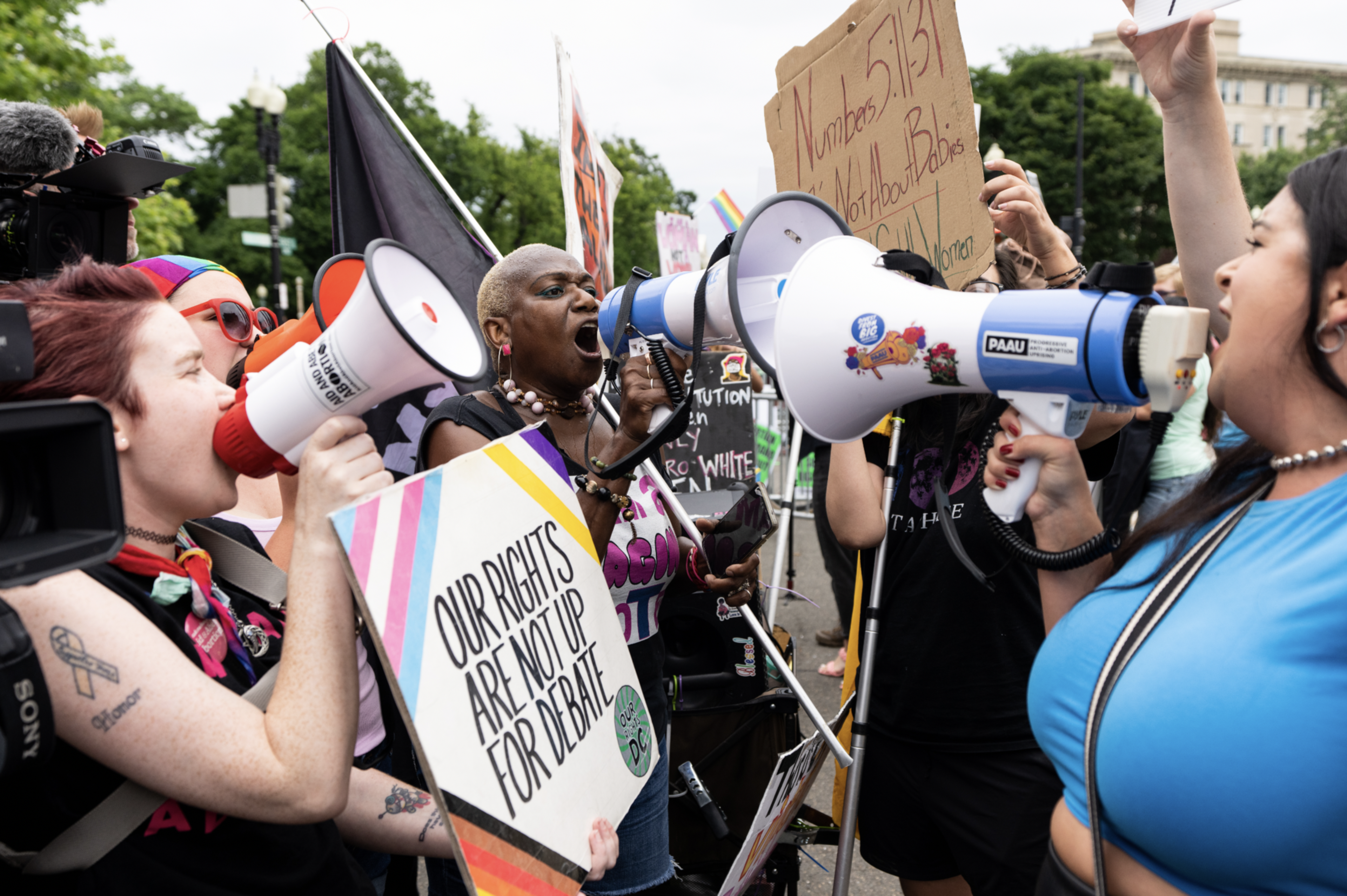Now that the Supreme Court has struck down Roe v. Wade, local abortion providers and advocates are expecting a flow of out-of-state patients to California and preparing to push for more legal protections for the medical procedure in the state.
A divided court on Friday eliminated the constitutional right to abortion by upholding a law from Mississippi that bans abortion after 15 weeks of pregnancy. The ruling leaves the issue of whether abortion is legal to the states. Of the 26 states certain or likely to ban abortion without Roe, 13 states have trigger laws (opens in new tab) to make the restrictions take effect automatically.
San Francisco Mayor London Breed announced a series of initial steps (opens in new tab) Friday in response to the Supreme Court’s ruling.
The San Francisco Department on the Status of Women is preparing for an influx of people traveling from out-of-state for services by building a database of providers and advocacy organizations, measuring the city’s local capacity for abortion services and distributing $250,000 in emergency grants for local organizations.
“San Francisco cannot correct national policy, but we can ensure that those in this city are safe from anyone who wants to criminalize medical care and that we are working with the entire Bay Area to prepare for any impacts of this decision,” Breed said in a statement through her office.
“We’re prepared as much as we can be,” said Shannon Hovis, director of NARAL Pro-Choice California in San Francisco. “We’ve seen the writing on the wall here for a long time. The anti-choice machine has been working on this for decades.”
Long before the draft ruling leaked in May indicating that the court would strike down the constitutional right to abortion, states have steadily enacted restrictive laws that have curtailed abortion access. In September, Texas enacted a six-week abortion ban that evaded legal challenges (opens in new tab) by leaving enforcement to private citizens.
Since then, Planned Parenthood of Northern California CEO Gilda Gonzales estimates it has served 80 out-of-state patients, mostly from Texas.
“There will definitely be an impact of the available services in the other states,” Gonzales said.

Since the passage of the Texas law, reproductive freedom advocates have formed the California Future of Abortion Council and crafted a blueprint on how to manage the influx of patients. It culminated in a December report that recommended (opens in new tab) investments in abortion funds, strenghtening legal protections for abortion patients and providers, addressing misinformation and collecting data around abortion care. It also recommended adequate and timely reimbursement rates for Medi-Cal, which covers over half of abortions in the state.
Dr. Montida Fleming of the UCSF Bixby Center, which participated in the council, said abortion providers like herself are gearing up to address training shortages likely to occur in states where abortion is restricted. She is also working outside of UCSF to expand access in obtaining a medical license in states likely to see a surge in telehealth for abortion pills.
“Ultimately, no matter what happens with Roe or with state-based restrictions, we are a community of dedicated professionals that will continue to provide compassionate care, treat people with dignity and respect and help people get what they need,” Fleming, an assistant clinical professor of family and community medicine, said in an email.
Earlier this month, the Bar Association of San Francisco and City Attorney David Chiu announced the Legal Alliance for Reproductive Rights (opens in new tab), with about 30 law firms signed on to provide free legal services. Some scenarios include defending lawsuits against people seeking or assisting in providing abortions in California, representing providers who receive subpoenas and partning with public defenders where abortion in criminalized.
Also in June, Attorney General Rob Bonta issued a consumer alert (opens in new tab), warning Californians of the potentially misleading nature of crisis pregnancy centers that discourage people from seeking abortions while advertising reproductive health services.
Hovis and Gonzales both urged the passage of a measure on the November ballot that would enshrine abortion and contraception as a constitutional right in California.
“Political consequences are real,” Hovis said. “Things are going to get worse before they get better. It’s not the time to sit on the sidelines.”
A protest in response to the Supreme Court’s ruling is planned for Friday evening at San Francisco’s Federal Courthouse. Participants will meet at 450 Golden Gate Ave. at 5 p.m.
Charlotte Ehrlich and Sophie Bearman contributed to this story.
